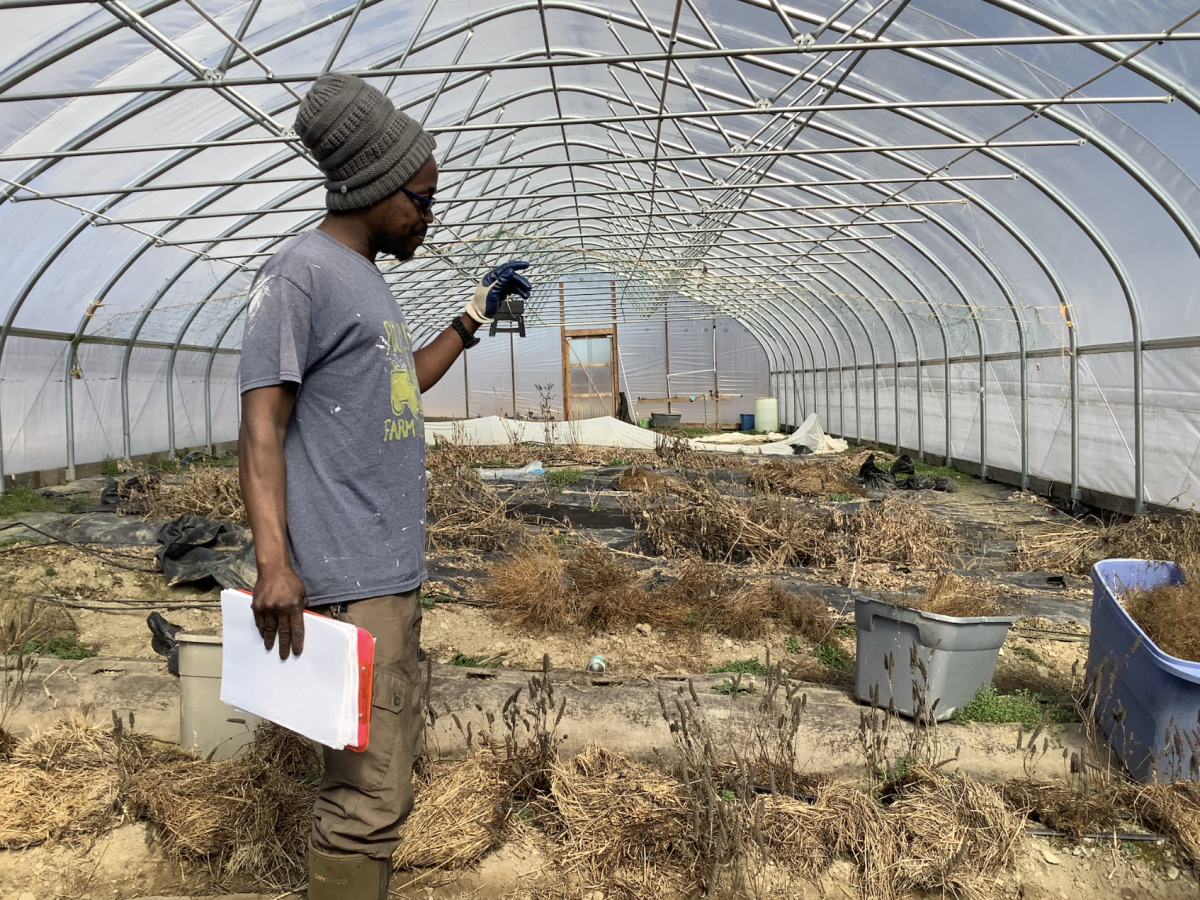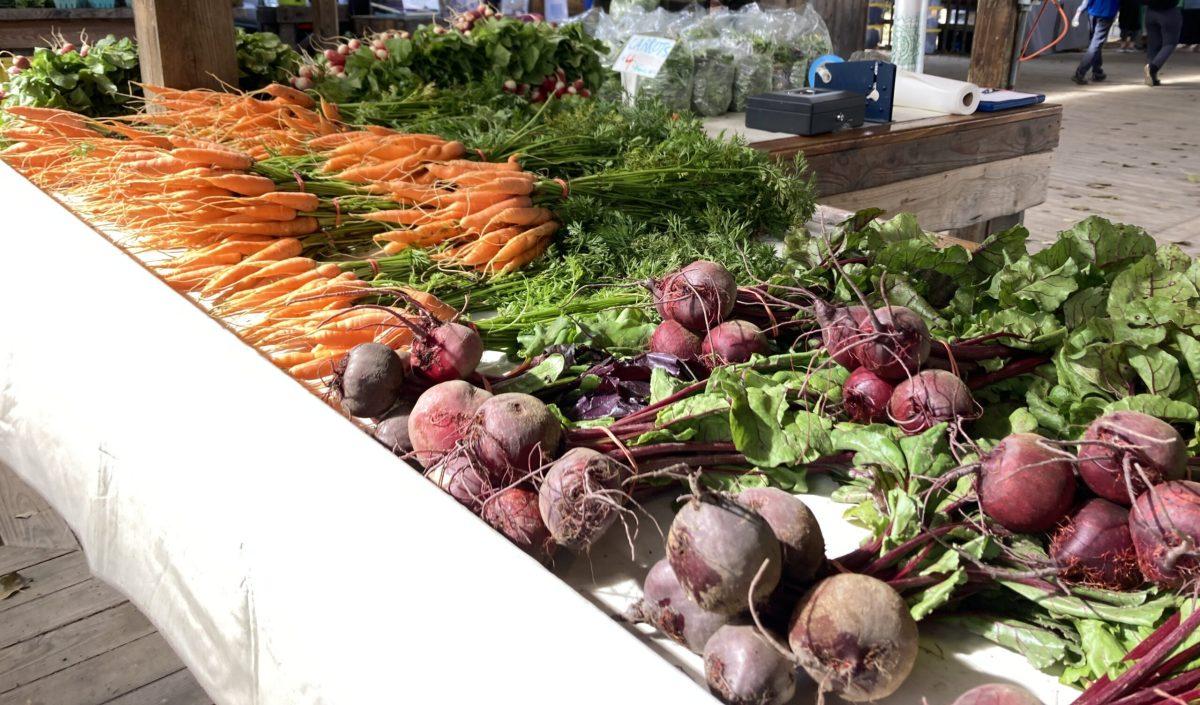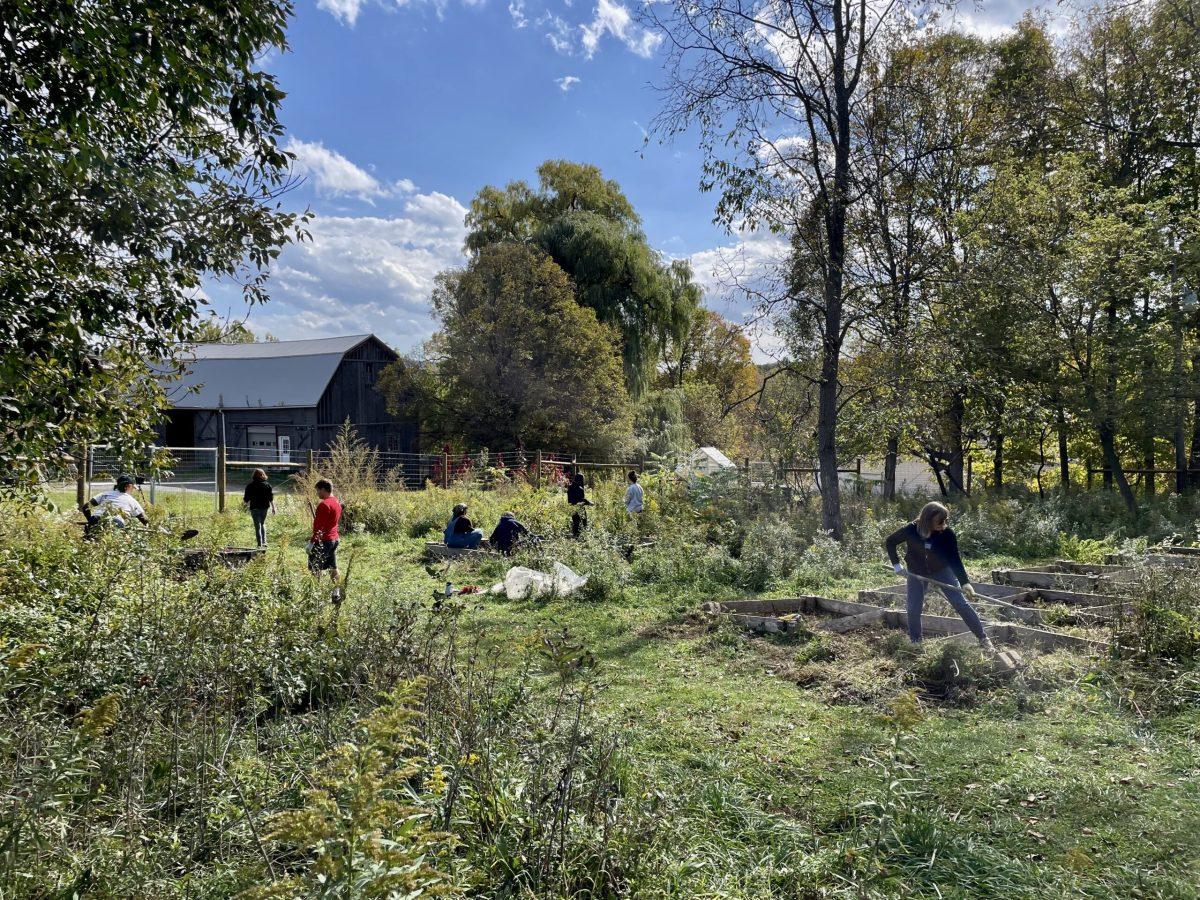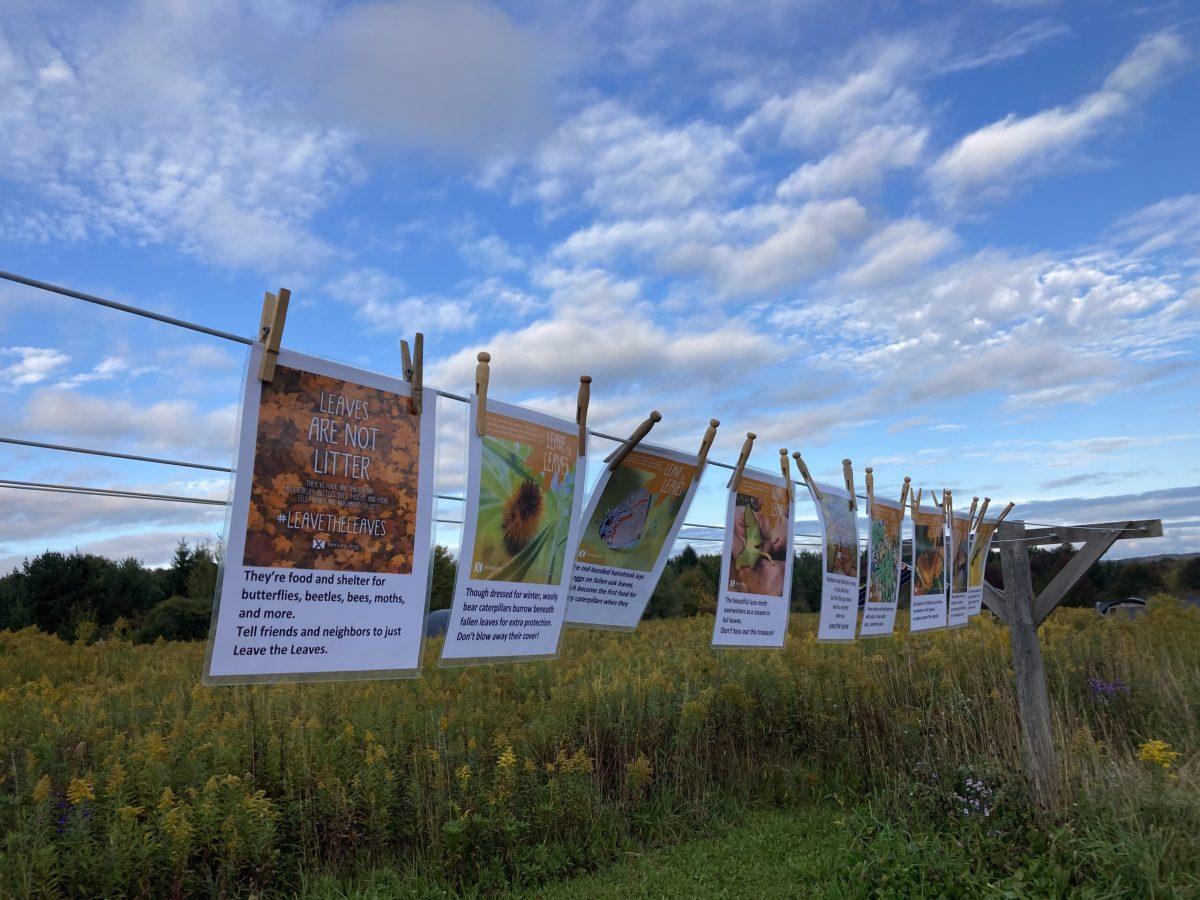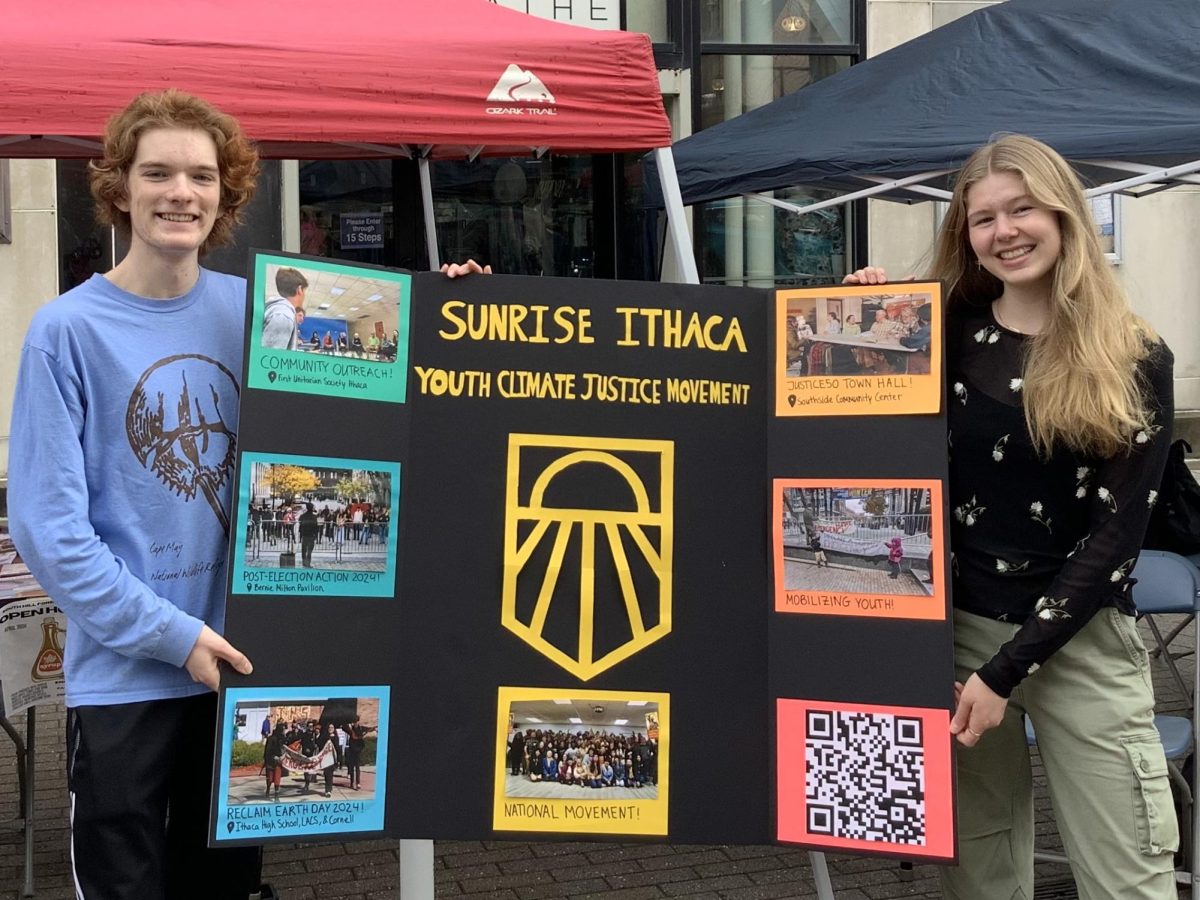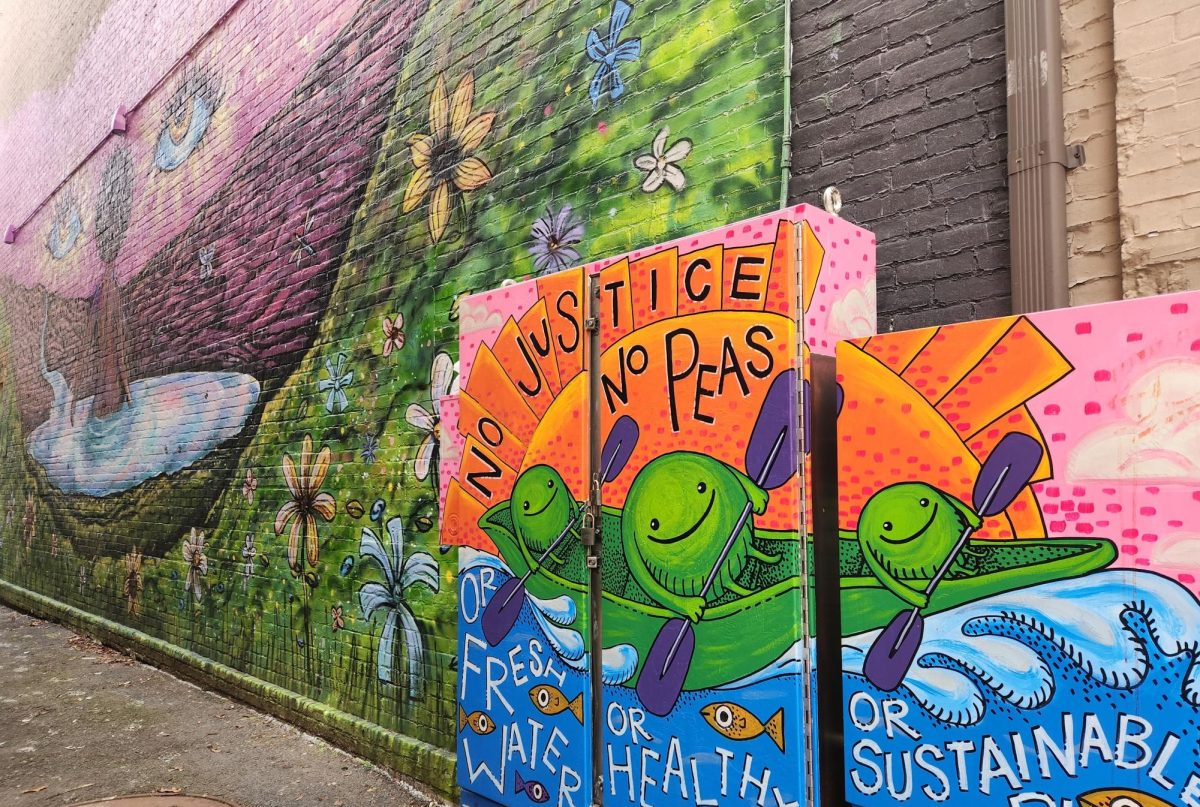
On a crisp, sunny Saturday in Ithaca, New York, over a dozen Ithacans gathered in Carpenter Circle, clad in overalls and hiking boots, to spend their morning working hard in Ithaca Community Garden. Sept. 24 was this month’s workday at the garden. The workday system allows gardeners with plots to help out in the garden as part of a payoff system for the cost of their plots, completing various tasks to maintain the garden.
“Basically we work on the compost, we mow, we have a couple food donation plots, that people work on, we pick up garbage,” Judith Barker, current president of the garden’s executive board, said.
According to both Barker and Doug Dylla, workday coordinator, the garden allows Ithaca residents without backyards, especially from the Northside, Southside and Fall Creek areas, to have a space to garden.
“We have a very nice mix of communities, families, households here that otherwise might not come across, and, on a workday like today, not only do we get to grow our food here but we get to work together as well,” Dylla said.

Another population that thrives at the garden is the local Burmese refugee community. According to the website of Ithaca’s First Presbyterian Church, by 2011, over 100 refugees from Burma had settled in Ithaca, mostly from the persecuted Christian Karen population. One such family is the Min family.
Nano Min, an Ithaca High School student whose family emigrated from Burma to Ithaca in 2011, said she comes to the garden with her family three times a week.
“My mom just, like, wanted to grow food, because we’re from Southeast Asia, the food is different from here,” Min said. “Some foods can grow — like, the Asian food that we eat, here they don’t eat it, so we grow our own food.”
However, the benefits of gardening go beyond the vegetables the gardeners sow. Michigan State University Extension’s website explains that there are health benefits just from being around plants and fresh air, not even considering the health benefits from the fresh-grown vegetables themselves. The university cites the Minneapolis organization Gardening Matters: “A ten percent increase in nearby green space was found to decrease a person’s health complaints in an amount equivalent to a five year reduction in that person’s age.”
Additionally, gardening is a relaxing form of exercise with tangible results: “According to the Centers for Disease Control and Prevention (CDC), moderate-intensity level activity for 2.5 hours each week can reduce the risk for [many diseases]… The CDC considers gardening a moderate-intensity level activity, and can help you to achieve that 2.5 hour goal each week.”
But, as Dylla said, gardening’s health benefits are even broader.
“I think [the benefit] is mostly for the physical and spiritual health of the gardeners who are here and other visitors who might go by here,” he said.


